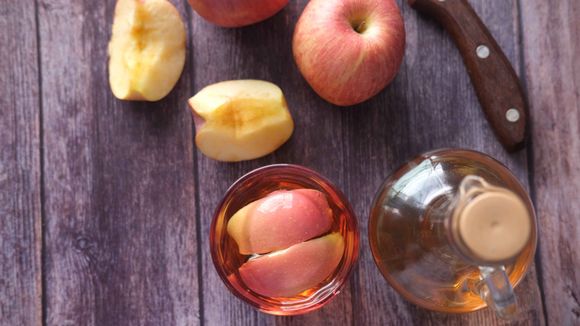What is apple cider vinegar?
Apple cider vinegar is a type of vinegar produced from fermented apple juice. Like other cider and wine-based vinegars, it usually has between 5 and 6 percent acidity.
You may have noticed that there are different types of apple cider vinegar. For example, you may be most familiar with distilled apple cider vinegar, which looks transparent in the bottle. But raw, unfiltered or unpasteurized apple cider vinegar contains a cloudy substance. This is called "mother" and is formed by natural enzymes during fermentation. This substance is usually at the bottom of the bottle and is completely safe for consumption. [ref. 1]
It is usually stored at room temperature and does not need to be stored in a refrigerator before or after opening. In general, vinegar has an almost unlimited shelf life. Even if the appearance of vinegar changes (it may look cloudy), it can still be used. This almost completely answers the basic question, namely: "does apple cider vinegar spoil". However, it is important to clarify a few more things in relation to its storage and use.
Shelf life and tips for proper storage of apple cider vinegar
The acidic nature of vinegar makes it a self-preserving product, which means that it usually never sours and has no shelf life.
The pH scale, which ranges from 0 to 14, shows how acidic a substance is. a pH lower than 7 is acidic, and a pH above 7 is basic. Acetic acid, the main ingredient of apple cider vinegar, has a strong acid pH between 2 and 3.
Vinegar has natural antimicrobial properties that probably contribute to its long shelf life. In fact, vinegar can prevent the growth of microbes causing diseases such as E. coli, Staphylococcus aureus and Candida albicans. [Ref. 2]
The best way to store apple cider vinegar is in an airtight bottle or other container, in a cool and dark place, away from sunlight, such as in a kitchen pantry or basement. Cooling apple cider vinegar is unnecessary and does not improve its durability, as already mentioned.

How apple cider vinegar changes over time
With the "aging" of vinegar, it can undergo aesthetic changes, such as getting cloudy, having sludge at the bottom of the bottle. This is completely in order of things and is largely due to exposure to oxygen, which occurs every time you open the cap.
Over time, oxygen saturation also causes the release of citric acid and sulfur dioxide, two preservatives in vinegar. This may affect its taste, but these changes do not significantly affect the nutritional value or shelf life of apple cider vinegar.

